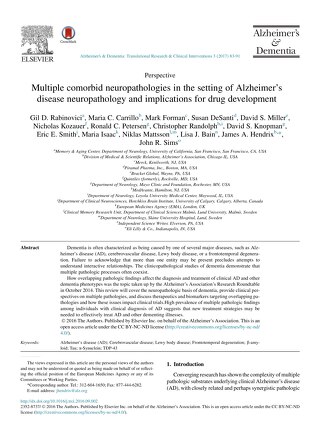
Christopher Randolph, PhD, ABPP-CN
Chief Scientific Officer
Biography
Dr. Randolph joined WCG in 2017 with its acquisition on MedAvante, a clinical science-driven data services company dedicated to maximizing signal detection in global clinical trials.
Dr. Randolph has an enduring interest in the differential diagnosis and treatment of dementia. He is the author of the Repeatable Battery for the Assessment of Neuropsychological Status (RBANS), a brief neurocognitive test that is widely used for clinical diagnostic evaluations and as a neurocognitive endpoint in clinical trials, including Alzheimer’s disease trials.
In his new role at WCG’s MedAvante-ProPhase company, Dr. Randolph oversees a variety of clinical trial services, including electronic source development.
Dr. Randolph also serves as a consultant in clinical trial design, rater training, and quality control methodologies for clinical trials involving several central nervous system disorders. He has published extensively on a variety of topics involving neurodegenerative, neuropsychiatric, and neurotrauma-related disorders.
Dr. Randolph is a board-certified clinical neuropsychologist and clinical professor of neurology at Loyola University Medical Center in Chicago. Dr. Randolph obtained his undergraduate degree from Vanderbilt University and his MS and PhD degrees in clinical neuropsychology from Rutgers University and The University of Medicine and Dentistry of New Jersey.
He completed a fellowship at the Clinical Brain Disorders Branch of the National Institute of Mental Health, and subsequently held the position of staff fellow, and then senior staff fellow in the Experimental Therapeutics Branch of the National Institute of Neurological Disorders and Stroke.
Latest insights by Christopher
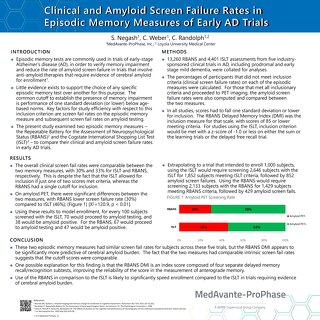
Clinical and Amyloid Screen Failure Rates in Episodic Memory Measures of Early AD Trials
Uncategorized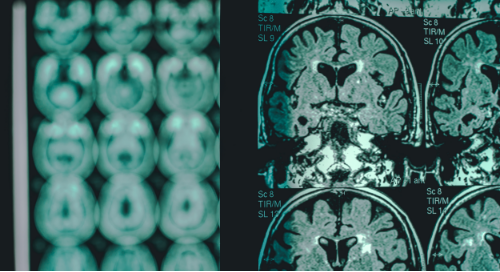
Are Your Raters Undermining Your Alzheimer’s Trials?
Blog Posts
Homing In On a Moving Target: Meeting the Challenges of Alzheimer’s Disease Research
Blog Posts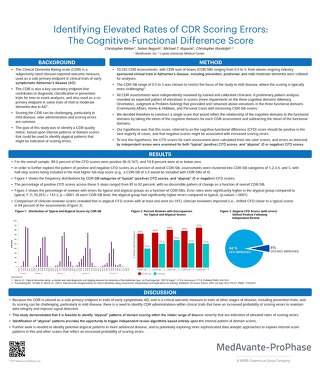
Identifying Elevated Rates of CDR Scoring Errors
Research
Prospective, Head-to-Head Study of Three Computerized Neurocognitive Assessment Tools Part 2: Utility for Assessment of Mild Traumatic Brain
Articles
Is cognitive decline measurable in preclinical Alzheimer’s disease?
Articles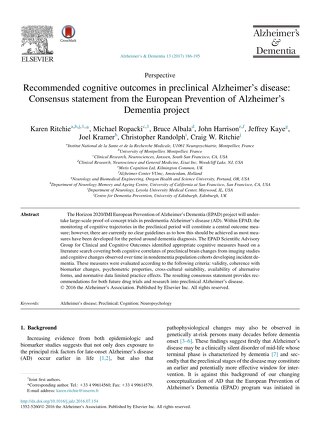
Recommended cognitive outcomes in preclinical Alzheimer’s disease – Consensus statement from the European Prevention of Alzheimer’s Dementia
Articles